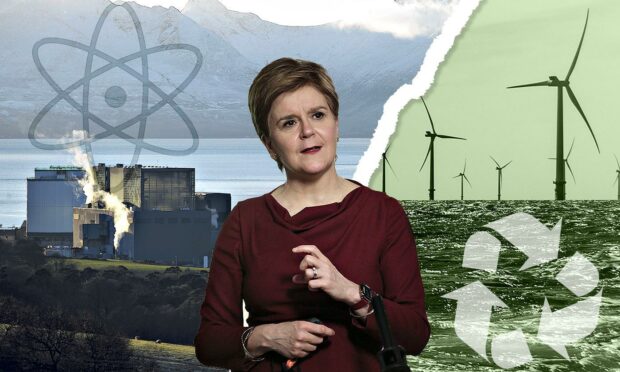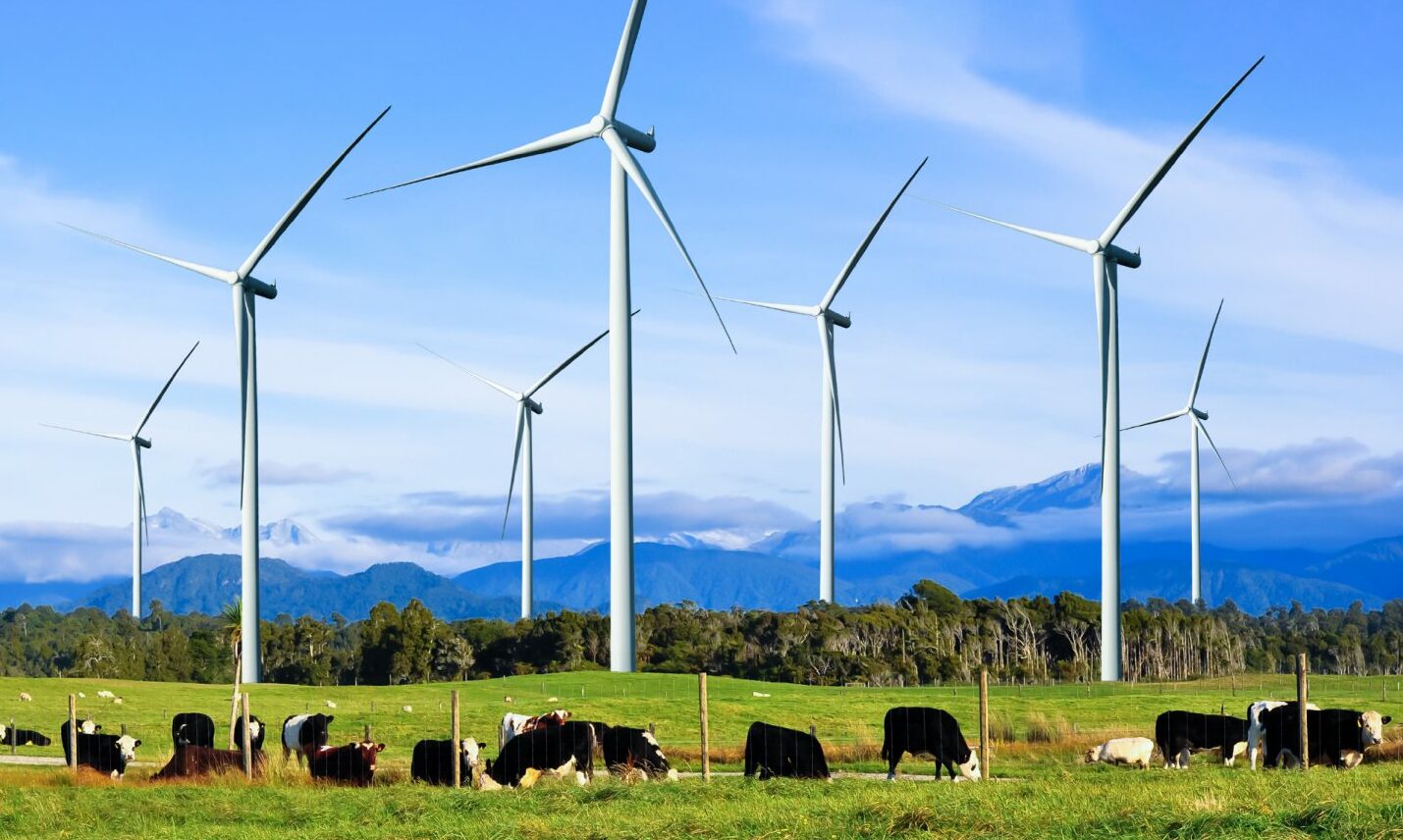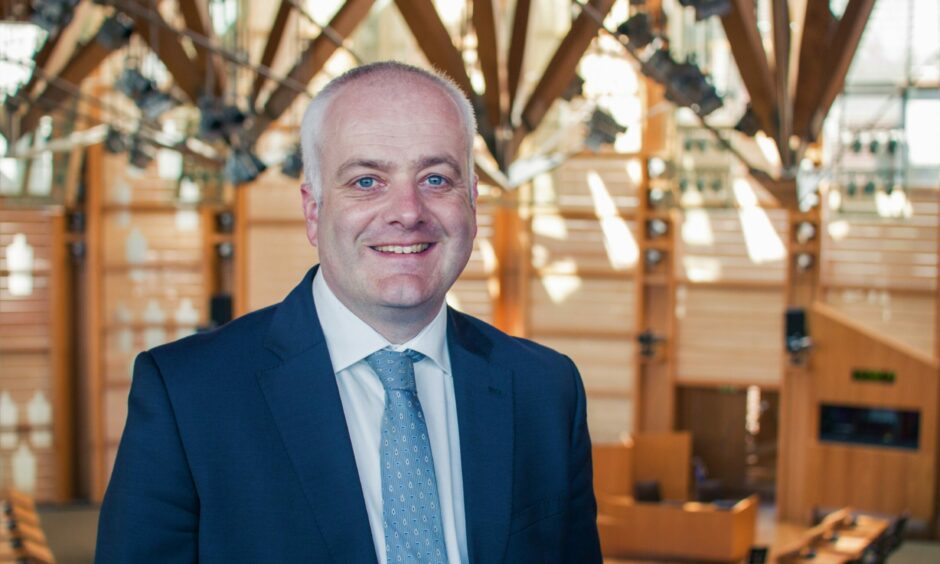One of Scotland’s two nuclear power stations has finally stopped supplying energy after more than four decades – sparking a heated debate about how the country will keep the lights on.
The loss of the Hunterston B plant comes at a crucial moment in a wider debate about the future of our energy supply and a renewed focus on “clean” power.
The SNP and high-profile environment groups are opposed to nuclear energy in Scotland over a mix of ideology, safety concerns and because of the huge costs involved.
But those who want to keep nuclear power stations claim it is reliable and can help lower carbon emissions in the fight against climate change.
It’s also feared shutting down nuclear power sites across the UK could result in energy bills rising and significant job losses as the sector becomes redundant.
Discussion over the controversial topic intensified since Scotland’s green credentials were put under the spotlight at the global COP26 climate conference in Glasgow.
Here’s all you need to know about the energy debate in Scotland and whether nuclear power might still feature in the drive for “net zero”.
Scotland shifts towards renewables
Nuclear power has been a major energy source in Scotland for decades and generated more than 40% of the country’s electricity in 2016.
But it is being increasingly phased out along with oil and gas as the Scottish Government focuses on renewables.
The shutdown of Hunterston B leaves Torness Power Station, near Dunbar, as Scotland’s only nuclear site for producing energy. The East Lothian plant – a major employer – is also scheduled for retirement later this decade in 2028.
Nuclear energy backers and political rivals have slammed the Scottish Government for abandoning the sector.
They claim it is the most dependable form of clean energy, and that shutting down sites could lead to Scotland importing fossil fuels from abroad with oil extraction from the North Sea also being curbed.
The UK’s Nuclear Industry Association said ruling out new power stations was “bad science” and could increase electricity costs for households.
We need new nuclear – to get to net zero and provide the reliable, secure and clean power to live our lives.
– Tom Greatrex, Nuclear Industry Association
Britain faces an unfolding energy crisis with major companies folding and consumers facing rising bills each month.
Opponents say nuclear power is unsafe, with notable faults in plants sparking huge safety concerns.
Former Labour MP Tom Greatrex, now chief executive of the Nuclear Industry Association, said: “Hunterston B has shown the best of what nuclear can provide for Scotland – clean, reliable power to keep the lights on and save our planet.
“As the current energy crisis demonstrates, without nuclear the cost of the electricity we rely on is higher, causes pollution and leaves us reliant on burning imported fossil fuels.
“That’s why we need new nuclear – to get to net zero and provide the reliable, secure and clean power to live our lives.”
He added: “Ruling out new nuclear is bad science and bad judgement for Scotland.”
‘Closure of Hunterston B was inevitable’
Environmental group WWF Scotland criticise power stations as “unreliable” and believe renewables will be crucial in helping the country meet climate change targets.
Director Lang Banks said: “The repeated failure to solve the problem of hundreds of cracks in the graphite bricks surrounding the reactor core means the closure of Hunterson B was inevitable.
“Thankfully Scotland has massively grown its renewable power generating capacity which means we’ll no longer need the electricity from this increasingly unreliable nuclear power plant.
“As the expensive and hazardous job of cleaning up the radioactive legacy Hunterston leaves in its wake now begins, Scotland must press on with plans to harness more clean, renewable energy.”
Their stance is shared by eco group Friends of the Earth, who say that nuclear energy “suffers from complex problems” and creates long-lasting toxic waste.
Their Scotland director Dr Richard Dixon said: “Scotland is well on its way to getting all of our power from renewables; nuclear is yesterday’s technology. I look forward to a nuclear-free Scotland before the end of the decade.
“Hunterston has been forced to close and Torness faces real problems with cracking in its graphite cores which has means that it’s operator EDF must shut it down earlier than they wanted.
“People living near these stations must now be reassured that EDF and the relevant authorities have credible, well resourced plans to clean up this toxic legacy of nuclear power in the decades ahead.”
I look forward to a nuclear-free Scotland before the end of the decade.
– Dr Richard Dixon, Friends of the Earth
The Scottish Tories back extending nuclear power usage and branded the SNP’s energy approach “ill-informed”.
North East Tory MSP Liam Kerr said: “Scotland needs a broad mix of energy sources in order to meet its environmental targets – and nuclear power should absolutely be part of that.
“Nuclear energy is one of the best green energy sources we currently have, and the SNP have no credible plans to keep the lights on and bills down without it.
“If the SNP are serious about meeting their climate change targets, they must U-turn on their ill-informed opposition to nuclear power.”
But the Scottish Greens favour renewables instead and believe subsidies for the nuclear power sector should be directed to “modern solutions” which help the planet.
Party energy spokesperson Mark Ruskell said: “Communities deserve a just transition away from an energy source that is expensive and neither clean nor sustainable.
“The vast subsidies involved would be better spent investing in modern renewable energy solutions that provide a long-term future for workers and our planet.”
Meanwhile, trade union GMB Scotland criticised the decision to close the Hunterston plant due to job losses.
The union stated: “Hunterston B has been a workhorse for our energy mix, keeping the lights on and delivering opportunity and prosperity.
“The station and workforce should be celebrated, but its shutdown is also a lament over the Scottish Government’s attitude to nuclear.”
European powers split on nuclear debate
The debate over nuclear energy is a global one and rages on among world leaders across the globe.
Two of Europe’s largest countries, France and Germany, are split on the subject.
The French depend on power stations to generate electricity with nuclear serving as their main power source.
But the Germans have taken the opposite stance following the Fukushima disaster in Japan.
The devastating nuclear accident in 2011 was the most severe global incident since the infamous Chernobyl disaster in 1986.
Significant growth in renewables, storage, hydrogen and carbon capture provide the best pathway to net zero by 2045
– Scottish Government
The Scottish Government said they “remain clear” in their opposition to nuclear power going forward.
SNP bosses believe renewables will be enough for the country to meets its climate change targets over the next two decades.
A spokesperson said: “Significant growth in renewables, storage, hydrogen and carbon capture provide the best pathway to net zero by 2045, and will deliver the decarbonisation we need to see across industry, heat and transport.”
“We recognise that planning will be crucial to ensure that economic and social opportunities from the transition are not missed.”
Hunterston B has been a workhorse for our energy mix, keeping the lights on and delivering opportunity and prosperity. The station and workforce should be celebrated, but it's shutdown is also a lament over the Scottish Government’s attitude to nuclear. https://t.co/XaTRGB39Q1
— GMB Scotland (@GMBScotOrg) January 7, 2022


